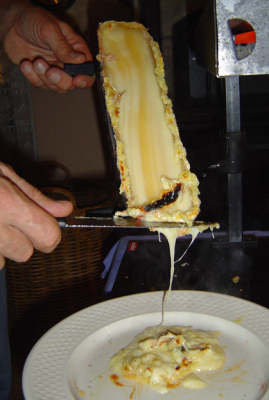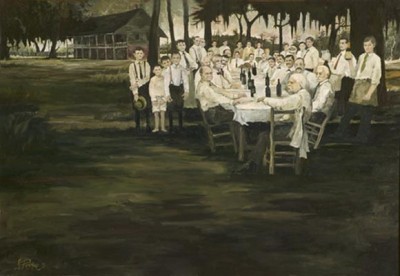
But I have another word for our men of science. It was inevitable, perhaps, that Latin– so long the Universal Language– should cease in time to be that in which scientific works were written. It was impossible, perhaps, to substitute, by consent, some equally neat and austere modern language, such as French. But when it became an accepted custom for each nation to use its own language in scientific treatises, it certainly was not foreseen that men of science would soon be making discoveries at a rate which left their skill in words outstripped; that having to invent their terms as they went along, yet being careless and contemptuous of a science in which they have no training, they would bombast out our dictionaries with monstrously invented words that not only would have made Quintilian stare and gasp, but would affront the decently literate of any age.
After all, and though we must sigh and acquiesce in the building of Babel, we have some right to examine the bricks. I was waiting, the other day, in a doctor’s anteroom, and picked up one of those books– it was a work on pathology– so thoughtfully left lying in such places; to persuade us, no doubt, to bear the ills we have rather than fly to others capable of being illustrated. I found myself engaged in following the manoeuvres of certain well-meaning bacilli generically described as “Antibodies.” I do not accuse the author (who seemed to be a learned man) of having invented this abominable term: apparently it passed current among physiologists and he had accepted it for honest coin. I found it, later on, in Webster’s invaluable dictionary: Etymology, “anti,” up against “body,” some noxious “foreign body” inside your body or mine.
Now gin a body meet a body, for our protection and in this gallant spirit, need a body reward him with this hybrid label? Gratitude apart, I say that for our own self-respect, whilst we retain any sense of intellectual pedigree, “antibody” is no word to throw at a friendly bacillus. Is it consonant with the high dignity of science to make her talk like a cheap showman advertising a “picture-drome”? The man who eats peas with his knife can at least claim a historical throwback to the days when forks had but two prongs and the spoons had been removed with the soup. But “antibody” has no such respectable derivation. It is, in fact, a barbarism, and a mongrel at that. The man who uses it debases the currency of learning: and I suggest to you that it is one of the many functions of a great University to maintain the standard of that currency, to guard the jus et norma loquendi , to protect us from such hasty fellows or, rather, to suppeditate* them in their haste.
—Arthur Quiller-Couch (1863-1944), On the Art of Writing (1916), a series of lectures he gave at Cambridge University 1912-1915
Quiller-Couch was objecting to the use of anti- (from ancient Greek) with -body (Anglo-Saxon). In the same way, “picture” is a Latinate word, and -drome comes from ancient Greek. Quiller-Couch believed that both parts of a new word should come from the same source.
* to supply










